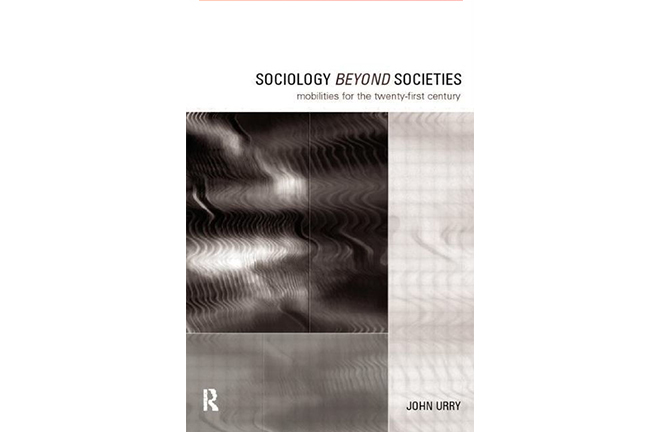Back to human: Building a living sociology

FILE PHOTO: Sociology Beyond Societies: Mobilities for the Twenty-First Century By John Urry
Since its inception, sociology has carried the mission of reconstructing social order and improving human life. The founders of sociology attached great importance to “the human” and its role in sociological research. In the later stages of classical sociology, however, various sociological research methods sought to advance the discipline under the banner of “scientific” rigor, viewing scientification as a means to overcome humanistic biases. While this approach enhanced the discipline’s professionalization to some extent, it gradually lost sight of “the human,” resulting in a sociology devoid of “people.”
British sociologist John Urry proposed establishing a “sociology beyond societies” as the vision for 21st-century sociology—essentially advocating the transcendence of traditional notions of “society.” The transformation and development of modern sociological research require repositioning “the human” at discipline’s core and building a living sociology. British sociologists Michael Burawoy, Les Back, and Nirmal Puwar have each discussed the concept of a “living sociology” from different perspectives, emphasizing that sociology should be grounded in real-world relevance, active engagement, and practical application.
The author believes that building a “living sociology” entails reaffirming the central value of “the human” throughout sociological research, highlighting the discipline’s value concerns, fundamental character, and knowledge commitment.
Strengthening sociology’s concern for human values: Genuine sociological knowledge should be based on reverence for the real world and reflection on the present era. Traditional instrumental knowledge tends to fix social contexts and actors’ intentions, eliminating the dynamic forces within social structures.
A “human-centered” sociology anchors its reflections in the inherent foundations of society and in reflexive knowledge, placing greater emphasis on the social imagination and experiential knowledge, as well as the conditions and lifestyles people ought to enjoy in social environments.
Highlighting the element of “life” inherent in sociological knowledge: “Life” constitutes the source and essence of all social phenomena, thus serving as the foundation for the establishment and development of sociological knowledge systems. Sociology is a discipline closely connected to everyday life. It should not only concern itself with “great books” and “great figures,” but also assist ordinary people in overcoming the structural constraints imposed on their daily lives.
A “human-centered” sociology does not entirely deny the validity of existing research paradigms and methods, nor does it seek to grant moral superiority to action research. Instead, it aims to identify the dynamics driving social formation and social change within human life, reveal the reciprocal construction between individual agency and social structure, and reaffirm the value and role of “the human” within the social fabric. This ultimately serves to build a sociological knowledge system that is more people-oriented, public-minded, and practical.
Returning to sociology’s human-centered social knowledge commitment: Social significance is not merely a tool for achieving progress but is itself the cause of progress. The goal of a “human-centered” sociology is to “build society” from the bottom up while continuing to extend the “sociological imagination.” This necessitates cultivating a “sociological imagination” that transcends tradition and integrates multiple connections during the analytical process. It breaks free from though patterns based solely on existing social forms, considers reflection on and critique of established social structures as sociology’s primary task, and explores various future possibilities on this basis.
Nevertheless, building a “living sociology” does not imply completely abandoning the research topics and analytical paradigms of classical sociology. Rather, it calls for a shift away from fragmented and incoherent knowledge, extending sociology’s explanatory chain in a more integrative and creative fashion, and enhancing its adaptability. Since its establishment, sociology has consistently aspired to uncover the universal principles of social development, while generations of sociologists worldwide have endeavored to build sociological knowledge systems aligned with their own historical and contemporary contexts.
Wen Jun is a professor from the School of Social Development at East China Normal University.
Edited by WANG YOURAN
